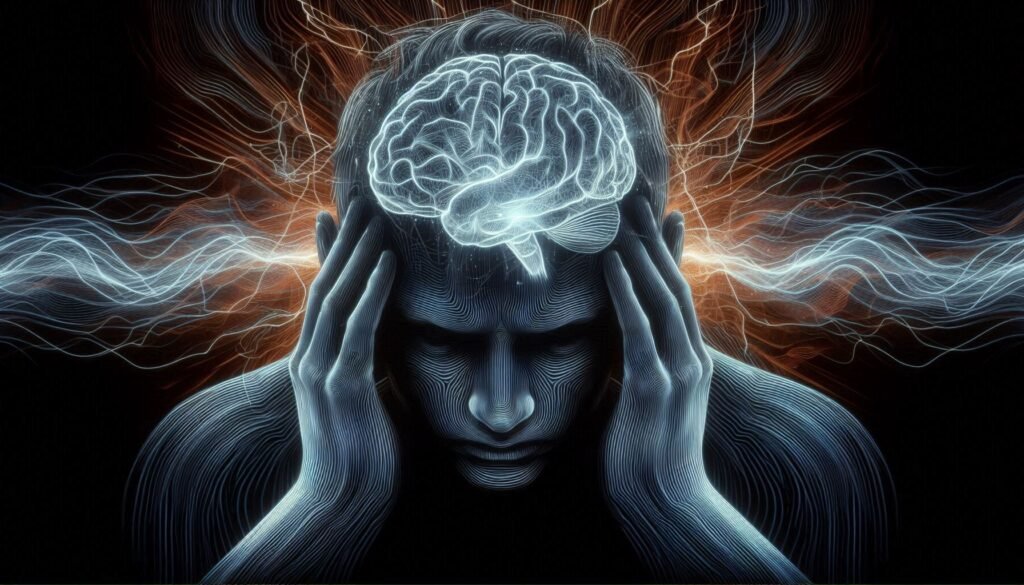Domestic violence is a pervasive issue that affects millions, yet many aspects of it remain hidden in the shadows. One critical and often overlooked aspect is the prevalence of head injuries, particularly concussions, among victims. The physical and emotional toll of domestic abuse can manifest in various ways, making it vital to understand how these two issues intertwine.
Victims may be suffering from more than just visible wounds; they might also endure invisible injuries like traumatic brain injuries (TBI). Understanding domestic violence and concussions is essential for recognizing the signs early and providing necessary support. This blog post aims to shed light on this urgent topic—raising awareness about identifying symptoms, understanding long-term effects, and offering guidance on available resources for those affected by both domestic violence and concussion-related trauma.

Understanding the Prevalence of Head Injuries in Domestic Abuse Cases
Head injuries, particularly concussions, are alarmingly common in cases of domestic abuse. Studies indicate that a significant percentage of victims experience physical assaults that can lead to traumatic brain injuries. These incidents often occur during violent episodes where the abuser strikes or throws objects at the victim.
Many victims may not realize they have sustained a concussion. The symptoms can be subtle and easily mistaken for stress or exhaustion related to their circumstances. This lack of awareness complicates the situation further, allowing injuries to go untreated.
Moreover, cultural stigma surrounding domestic violence often prevents individuals from seeking help. They might fear judgment or retaliation if they disclose their experiences, which can delay medical attention necessary for head trauma treatment.
The connection between domestic violence and head injuries underscores an urgent need for increased awareness among healthcare professionals and communities alike. Identifying these injuries early is crucial in providing appropriate care and support systems for affected individuals.
Identifying Concussion Symptoms in Victims of Domestic Violence
Identifying concussion symptoms in victims of domestic violence can be complex. Many individuals may not recognize their symptoms or attribute them to other stressors. Common signs include confusion, headaches, dizziness, and difficulty concentrating. These manifestations can often be mistaken for the effects of emotional trauma or fatigue.
Physical symptoms like nausea and sensitivity to light are also critical indicators. Victims might experience a change in sleep patterns as well, which could lead to further complications if left unaddressed. It’s essential for friends and family members to remain vigilant about these signs.
Emotional changes such as irritability or mood swings can occur alongside physical symptoms. Recognizing that these behavioral shifts may relate back to head injuries is crucial for proper support and intervention.
Victims may feel hesitant to disclose their experiences due to fear of judgment or retaliation from abusers. Therefore, creating a safe environment where they feel comfortable discussing their health concerns is vital for identification and recovery efforts.
The Cumulative Effect of Repeated Head Trauma in Abusive Relationships
Repeated head trauma is a serious concern in abusive relationships. Victims often experience multiple incidents of violence, leading to cumulative injuries over time. Each impact can exacerbate existing damage and create new neurological issues.
The brain is particularly vulnerable, and repeated concussions can result in chronic traumatic encephalopathy (CTE), a degenerative condition associated with severe cognitive decline and emotional disturbances. Symptoms may include memory loss, mood swings, and difficulty concentrating.
Victims may underestimate the significance of their injuries due to normalization of violence within the relationship. As a result, they might not seek medical help or report symptoms until it’s too late.
Furthermore, the stigma surrounding domestic violence often prevents open discussions about these health risks. Understanding this connection is vital for healthcare providers who must be alert to signs not only of physical abuse but also its hidden consequences on mental health and well-being.
Challenges in Diagnosing Concussions in Domestic Violence Contexts
Diagnosing concussions in domestic violence contexts presents unique challenges for healthcare professionals. Victims may not readily report head injuries due to fear, shame, or manipulation by their abuser. This silence complicates the identification of symptoms that are often overlooked.
Additionally, many concussion symptoms overlap with those of psychological trauma. Fatigue, anxiety, and headaches can be mistaken for stress-related issues rather than indicators of a brain injury. This ambiguity makes accurate diagnosis even more difficult.
Many individuals experiencing abuse might also have multiple injuries at once. A victim’s focus may be on visible wounds rather than subtle signs of a concussion. The urgency to address immediate physical harm can overshadow the need for neurological assessments.
Standard assessment tools used in medical settings may not account for the complexities inherent in abusive relationships. Without proper screening tailored to these situations, victims risk going undiagnosed and untreated, leading to long-term health consequences related to both their physical and mental well-being.
The Intersection of Concussion Symptoms and Psychological Trauma
Concussion symptoms often overlap with psychological trauma, making it challenging to identify the underlying issues in victims of domestic violence. Common signs like headaches, fatigue, and difficulty concentrating can mirror emotional distress experienced during abusive situations. This duality creates a complex web that can hinder timely diagnosis and treatment.
Victims may struggle with anxiety, depression, or post-traumatic stress disorder (PTSD). These conditions can exacerbate physical symptoms from head injuries. For instance, heightened anxiety might intensify sensitivity to light or noise—common concussion complaints.
Additionally, cognitive impairments associated with concussions can affect a victim’s ability to process their experiences fully. They may find it hard to articulate feelings or recognize patterns of abuse due to confusion caused by brain injury.
This intersection complicates care pathways for victims. Healthcare providers must adopt an integrated approach that addresses both the physical aspects of concussions and the psychological impact of trauma for effective recovery strategies.
Legal and Medical Considerations for Concussions from Domestic Violence
Navigating the legal and medical landscape surrounding domestic violence and concussions can be complex. Victims often face challenges in reporting incidents, as they may fear retaliation or feel shame about their situation. Understanding that a concussion is a serious injury is crucial for both victims and healthcare professionals.
From a legal perspective, evidence of head trauma can play an essential role in court proceedings. Medical documentation of injuries helps establish patterns of abuse, which can influence protective orders or custody arrangements. However, many victims hesitate to seek help due to stigma.
On the medical side, healthcare providers need training to recognize signs of concussions within the context of domestic violence. Accurate diagnosis can lead to appropriate treatment plans tailored specifically for these patients who may also be dealing with psychological trauma.
Medical professionals must communicate effectively with victims regarding their options without placing additional burdens on them. Building trust between healthcare providers and survivors is vital for addressing both physical injuries and emotional wellbeing.
Support Services and Resources for Victims with Head Injuries
Victims of domestic violence who experience head injuries often face unique challenges. Accessing support services tailored to their specific needs can be crucial for recovery. Numerous organizations specialize in helping victims navigate the complexities of trauma and medical care.
Local shelters, hotlines, and community centers provide immediate assistance for those escaping abusive situations. These resources often include counseling services focused on both physical injuries and emotional healing. Trained staff can help victims understand their rights and available options.
Medical facilities equipped with specialized programs offer evaluations by healthcare professionals familiar with concussion symptoms related to abuse. They can facilitate referrals to neurologists or psychologists when needed.
Additionally, advocacy groups are instrumental in promoting awareness about the link between domestic violence and concussions. They strive to educate the public while ensuring that victims receive comprehensive support through legal aid, rehabilitation services, and peer networks designed for shared experiences.
Long-Term Neurological Consequences of Abuse-Related Concussions
Abuse-related concussions can lead to serious long-term neurological consequences that often go unnoticed. Victims may experience cognitive impairments, such as memory loss and difficulty concentrating. These symptoms can significantly hinder daily functioning, affecting both personal and professional lives.
Emotional disturbances are also common among those who have suffered from repeated head injuries in abusive relationships. Anxiety, depression, and mood swings may stem from the trauma of both physical abuse and brain injury. This emotional toll complicates recovery efforts.
Additionally, victims face an increased risk of developing neurodegenerative diseases later in life. Conditions like chronic traumatic encephalopathy (CTE) or early-onset dementia could emerge due to cumulative brain damage caused by multiple concussive events.
It’s crucial for survivors to seek medical evaluations tailored specifically for their situations. Proper diagnosis and treatment strategies can help address these long-lasting effects while offering hope for improved quality of life moving forward.
Training Healthcare Providers to Recognize Signs of Abuse-Related TBI
Training healthcare providers to recognize signs of abuse-related traumatic brain injury (TBI) is crucial in addressing domestic violence and concussions. Medical professionals often encounter victims who may be hesitant to disclose their experiences. This underscores the importance of training that focuses on understanding the subtle indicators of abuse.
Workshops and seminars can equip healthcare workers with skills to identify physical symptoms associated with concussions, such as headaches or dizziness, while also considering the context in which these injuries occur. Role-playing scenarios can help practitioners practice their responses and improve patient communication.
Moreover, educational programs should emphasize trauma-informed care approaches. This allows medical staff to create a safe environment for patients who may not initially feel comfortable discussing their circumstances.
Integrating education about domestic violence into medical curricula will ensure future providers are better prepared. It fosters awareness around the link between domestic violence and TBI, ultimately enhancing support for affected individuals seeking help.
Prevention Strategies and Public Awareness Campaigns
Prevention strategies and public awareness campaigns play a critical role in addressing the intersection of domestic violence and concussions. Community education is essential for recognizing the signs of both abuse and head injuries. Schools, workplaces, and healthcare settings can implement training programs that empower individuals to identify warning signs in themselves or others.
Local organizations can host workshops discussing healthy relationships, emphasizing consent and respect. These initiatives should also focus on increasing understanding around traumatic brain injuries (TBI) related to domestic violence. Awareness campaigns through social media platforms are vital for reaching a broader audience. They should highlight resources available for victims while encouraging people to speak up when they suspect someone may be suffering.
Moreover, collaboration with law enforcement agencies ensures that response teams are equipped to handle cases involving potential head trauma alongside allegations of abuse sensitively. By creating safe environments where victims feel supported, we enhance their chances of seeking help early.
Investing time into these prevention strategies fosters community resilience against domestic violence while promoting an informed public prepared to take action against it—even before any physical signs emerge.

